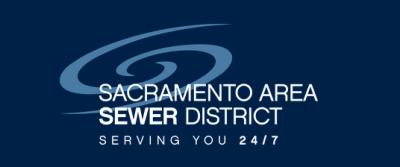According to the Internal Revenue Service (IRS) data released earlier this year, audit enforcement efforts have increased in virtually every area. The IRS annual data book includes the statistical data on activities for the fiscal year 2006.
The data includes how many tax returns the IRS audits and what types of returns it focuses on. Approximately 1,284,000, or 0.97 percent, of all individual tax returns filed in 2005 were audited. Although this number appears low it has almost doubled over the past five years. Audits of pass through entities also have been on the rise with increases in S corporation and partnership audits by 34 percent and 15 percent, respectively, since tax year 2000.
IRS enforcement efforts have been focused on high-income taxpayers. Audits of individuals with income of $1 million and higher have increased by 33 percent over the past year. The risk of an office audit (face-to-face audit) in tax year 2006 was one out of 16 audits for high-income taxpayers.
Audits of individuals with income more than $100,000 also have been on the rise with an increase of 18 percent over the past year. Fortunately, most of the increases in individual audits are attributed to correspondence audits, which are done through the mail. These types of audits take very little time to resolve and are far less intrusive than office audits. During 2006, more than three out of four audits were correspondence audits. Taxpayers who report business income on Schedules C, E, F or Form 2106 have a far greater risk for a potential office audit, because the Small Business division of the IRS handles these audits.
The IRS is placing more focus on the growing area of S corporations and partnerships known as pass through entities. Audits of pass through entities are at their highest levels since 2000. Although correspondence audits are utilized, field audits are the most common type of small business audit. A field audit is one of the most intrusive and time-consuming types of audits. Revenue agents with the most extensive experience and knowledge of tax law perform field audits. Lower-skilled agents perform the easier correspondence and office audits.
The IRS uses a variety of methods to select returns for examination, including computer scoring, information matching, leads from informants and random samples. If you are a high-income taxpayer, are self-employed, receive pass through income and/or claim business deductions, you are at a greater risk for an audit due to the increased enforcement efforts by the IRS.
One of the IRS’s primary methods for selecting returns is the computer scoring method called Discriminant Index Function, or DIF. Under this method taxpayers are scored by mathematical formulas. Taxpayers with higher scores are more likely to be audited. The following items increase your DIF score:
• Income greater than $100,000;
• Income from pass through entities;
• Casualty losses;
• Meal and entertainment deductions;
• Excessive business auto use;
• Self-employment income, or low gross profit margins from SE income;
• Low income with large deductions;
• Non-cash charitable contributions; and
• Hobby losses
Another primary method used for selecting returns is the Market Segment Specialization Program. This method focuses on the industry rather that the type of income and deductions reported. A market segment can be an industry such as manufacturing, a professional group such as lawyers or an issue such as passive activity losses. The IRS has released audit guidelines on 87 industries, professions and issues.
Returns also may be selected because of information received from the media, public records or individual informants (such as disgruntled employees). The IRS evaluates the reliability and accuracy of such information before using it as the basis of an audit as it may be unreliable.
Proper records should include as much paper documentation as possible. Try to avoid transactions that are difficult to prove, such as cash transactions. Keep a receipt for all deductible expenses, especially food, entertainment and travel. Organize your records thoroughly before presenting them to the IRS. Disorganized records can be a red flag to signal auditors to take a closer look. One way to stay organized is to keep a meal and entertainment expense log containing the following:
• Name and location of the expense,
• Amount paid,
• Date and time,
• Person or company you entertained or dined with, and
• Topic of business discussed
It is certain that the IRS will continue on its current trend and continue to select more tax returns for examination. It is important as a taxpayer to stay organized and retain proper records. Staying prepared for an audit may help to avoid a proposed adjustment if you are chosen for examination. Records should be maintained for a minimum of four years as the IRS can audit you up to three years after your return has been filed. In addition, the IRS has six years to perform an audit if they suspect gross income has been under-reported by more than 25 percent. Keeping accurate records for seven years is the best practice.
If you are selected for an audit, it is best to contact a tax professional to represent you. Typically IRS personnel in charge of correspondence audits have only rudimentary training and are known to make mistakes. Without proper representation, you may end up with an incorrect tax result and/or releasing information giving rise to additional tax issues. Even if the IRS has correctly made a change to the tax return, there may be an error in the recalculation of taxes.
For more information, call 610/687-1600.
(Michael J. Kerwin is director of tax of Stephano & Associates LLC of Wayne, Pa.)
Today's top stories















